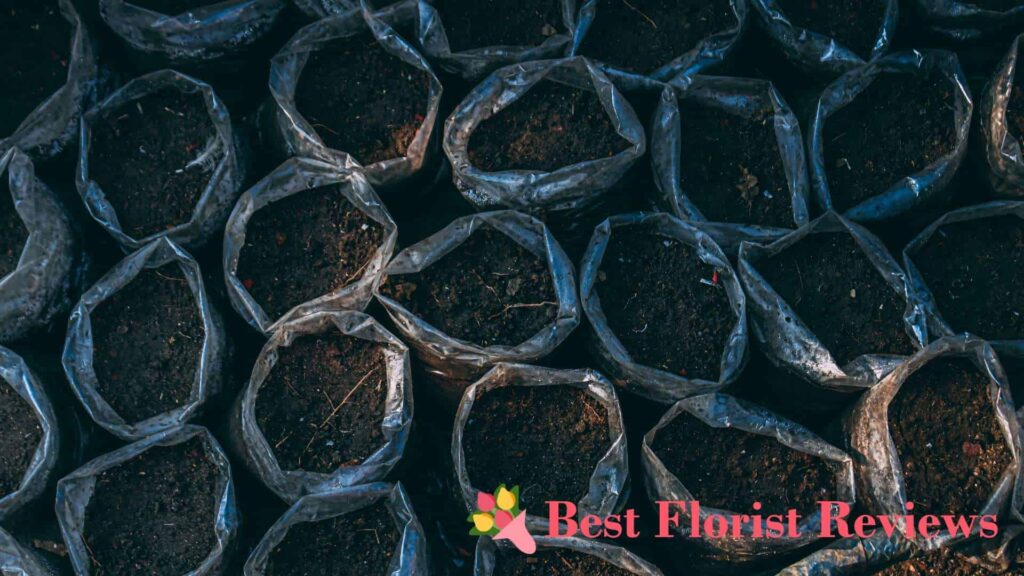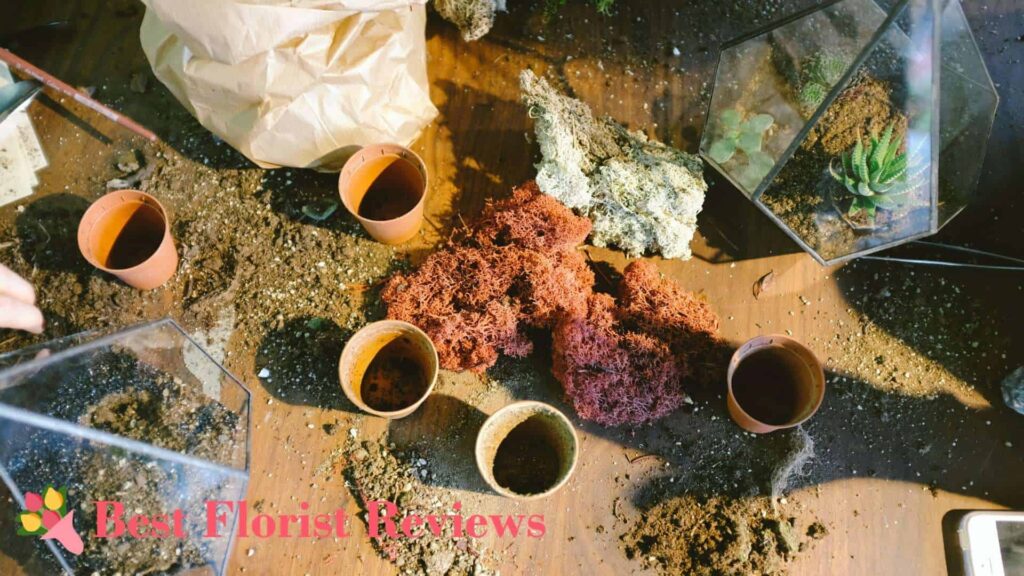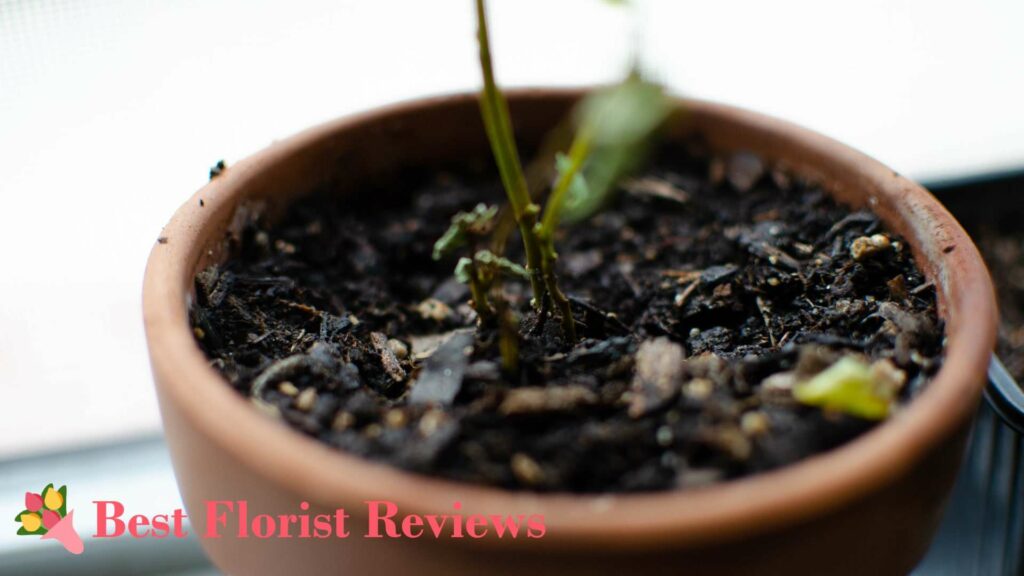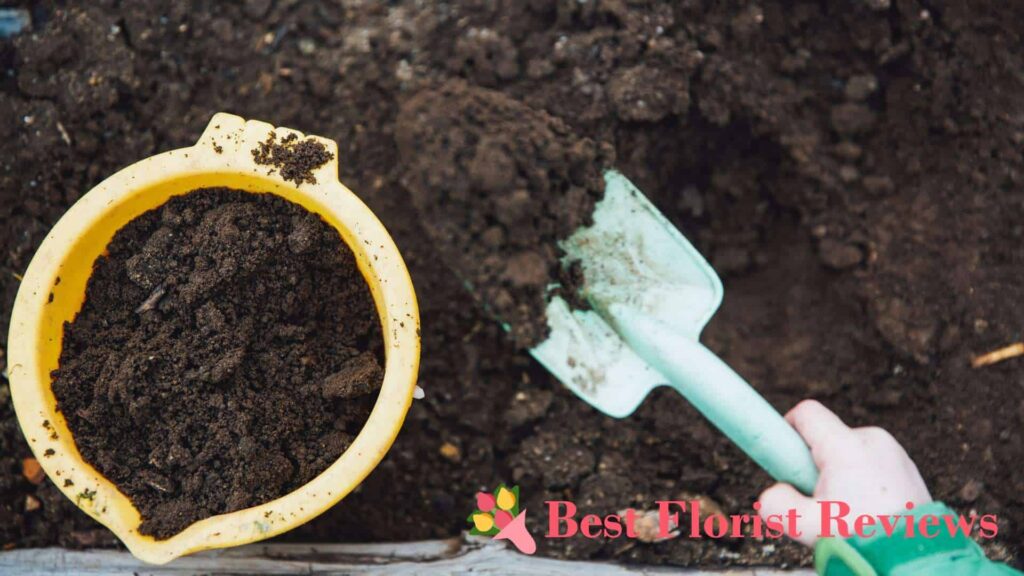Indoor citrus trees thrive in soil that’s well-draining, porous, and nutrient-rich, with a slightly acidic pH of 5.5 to 7. Hence, a soil mix with worm casting, perlite, sand, and peat moss is ideal for them.
In this guide, you’ll learn more about the best soil for indoor citrus trees, from things to consider to the best recipes for a good soil mix. So, don’t worry about not being able to enjoy their refreshing scent, as we’re here to help!
Things to Consider When Choosing Soil for Indoor Citrus Trees
Drainage


Citrus trees are sensitive to soggy conditions and susceptible to root rot. Hence, it’s crucial that the soil has good draining capacity.
If the water accumulates in the soil, it makes the soil soggy. When it gets too soggy, the citrus plant may suffer from water stress, making it difficult for the citrus tree to uptake water efficiently.
A soggy soil can also suffocate the roots. The soil will eventually become compacted because of the amount of moisture, making it hard for oxygen to reach the soil.
Additionally, when the soil doesn’t drain well, it creates an environment for harmful pests and fungi to thrive. These pests can be harder to address, as citrus plants are sensitive to some chemicals that you’ll find in some commercial pesticides.
Aeration


Citrus trees need oxygen to produce the energy necessary for them to grow. Without it, the roots will become stressed and suffocate, which can cause the plant to die.
Additionally, when the soil is too compacted, the roots won’t be able to expand, causing the citrus tree to stagnate. This will also hinder the roots’ ability to uptake water and nutrients.
That’s why the soil needs good aeration and should be as porous as possible. Adding perlite and bark compost can greatly help aerate the soil.
Avoid using clay when making a soil mix, as it’s naturally compact and does not have good aeration. It’s also not well-draining, making it even more unsuitable for citrus trees.
pH Level


Citrus trees prefer a slightly acidic pH for optimal growth. It’s best to keep the soil at 5.5 to 7.0 pH to help the tree absorb as much nutrients as it needs.
A soil that’s too alkaline can hinder the trees’ ability to uptake nutrients, as it’s not a suitable environment for them. It can also limit the availability of iron in the soil, which is particularly important for citrus trees.
That said, the soil shouldn’t be too acidic at the same time. This can harm the beneficial microorganisms in the soil.
Nutrient Content


Nutrients are essential for the citrus tree to grow and produce fruits. Nitrogen, phosphorus, potassium, calcium, zinc, manganese, sulfur, and more are essential nutrients you must look for when choosing a soil mix.
Most soil mix will have these nutrients, as most plants need them for growth. Iron, though, is especially important for citrus plants, so ensure they receive the right amount.
You can improve the soil’s nutrient content by adding fertilizer or organic matter to the mix.
Clay can hold the most nutrients, but don’t be fooled by this. It doesn’t have good aeration and drainage, so it’s best not to use it despite having great nutrient-holding capacity.
Components of Ideal Citrus Tree Soil
Peat Moss
Peat moss comes from decomposing plant material found in peat bogs. It has excellent moisture retention ability, provides nutrients to the plants, and improves the overall structure of the soil.
It creates air pockets to aerate the soil better and prevents it from compacting, making it easier for the roots to grow and develop.
Peat moss is better for citrus trees than coco coir since it’s naturally acidic. It can help lower the soil’s pH level, making it more suitable for citrus trees.
That said, if you only have coco coir, you can still use it as a substitute. Consider adding garden lime or solid acidifier to the soil mix if you’re using coco coir to achieve the desired pH of citrus trees.
Coarse Perlite
Perlite is a lightweight, volcanic glass commonly used in soil mixes for various plants, not just citrus trees.
Perlite can help improve the soil mix’s draining capacity and aeration properties, so it’s an ideal additive for the soil mix of citrus trees. Coarse perlite is especially good for citrus trees, as it allows water and air to flow better compared to standard perlite.
It also helps retain a small amount of moisture, which the citrus tree will need to develop and grow.
Bark Compost
Bark compost is a type of organic material widely used as a soil amendment and mulch. It’s produced by shredding and decomposing tree bark.
It helps retain moisture and regulate soil temperature. It also helps improve soil structure by enhancing drainage and porosity.
While bark compost doesn’t typically contain high levels of nutrients, it gradually releases small amounts of essential nutrients as it breaks down. This can contribute to soil fertility over time.
Moreover, bark compost typically has a low pH of 5–6, which is suitable for citrus trees. They’re usually more acidic than other composts, so they’re preferred for citrus tree soil.
Coarse Sand
Coarse sand has much larger particles compared to fine sand, so it’s preferred for a citrus tree soil mix.
It helps improve drainage by creating larger air spaces between soil particles, allowing excess water to move away from the root zone more efficiently.
Adding coarse sand can also help prevent the soil from compacting, allowing the roots to penetrate the soil more easily and access nutrients and water.
Coarse sand can drain water too quickly, so it’s best to add some components that can hold moisture, like peat moss and bark compost, to avoid an arid environment for the citrus.
Worm Casting
Worm casting is a nutrient-rich organic waste produced by earthworms as they digest organic material. It’s basically the poop of earthworms!
These castings are rich in nutrients like nitrogen, phosphorus, and potassium, which are essential for the growth of citrus trees.
Moreover, they also increase the organic matter in the soil. This organic matter is beneficial for the good bacteria and microbes in the soil.
Worm casting also helps the soil retain moisture, which can help the citrus get the amount of water it needs for healthy growth.
Soil Mix Recipes for Citrus Trees


Recipe #1
- 1 part sand
- 1 part peat moss
- 1 part worm casting
- 1 part bark compost
This recipe is an ideal soil mix recipe for citrus plants, as it keeps the soil mix well-draining, nutrient-rich, and acidic.
Perlite already helps improve the mix’s drainage and aeration properties, but sand makes it even more well-draining. The coarse texture of sand creates bigger air pockets for the oxygen and water to flow better.
Worm casting keeps the mix as rich as possible, providing the citrus plant with the necessary nutrients it needs. The added bark compost also adds a small amount of nutrients to the mix.
Peat moss helps soften the mix and make it more acidic.
Recipe #2
- 2 parts peat moss
- 2 parts perlite
- 2 parts bark compost
This soil mix recipe focuses on giving the citrus tree a well-draining and acidic growing environment, which the tree prefers. It’s a great alternative if you don’t have all the ingredients in the first recipe.
Perlite gives the mix good drainage and aeration properties while still maintaining the essential amount of moisture. The bark compost also helps improve the drainage and moisture retention capacity while also adding more nutrients to the soil.
Peat moss, on the other hand, makes the mix acidic, just like how citrus trees want it.
You can also add fertilizer to this mix to provide the citrus tree with its needed nutrients. However, make sure to use a gentle, slow-release fertilizer to avoid burning the roots.
Common Problems of Citrus Trees Caused by Wrong Soil Mix
Root Rot
Root rot is one of the most common problems caused by the wrong soil mix, not just for citrus trees but for most plants.
Root rot happens when the soil is constantly wet because it’s unable to drain water efficiently. When this happens, the roots won’t be able to uptake nutrients, water, and oxygen, which can eventually lead to the plant’s death.
Oftentimes, root rot can also turn the citrus leaves yellow.
Treatment: In order to avoid this, it’s best to include ingredients like perlite, sand, and bark compost into the mix. It’s also important to make sure that the pot has enough drainage holes for the water to escape.
Stunted Growth
The citrus tree will likely suffer from stunted growth if the soil lacks the necessary nutrients like nitrogen, phosphorus, potassium, magnesium, and calcium.
These macronutrients are responsible for the plant’s growth, so it’s essential that it has access to a balanced amount of these. Without them, the citrus won’t be able to perform processes like photosynthesis and produce the energy it needs.
Treatment: Adding worm casting, bark compost, and fertilizer can help provide the plant with the necessary nutrients it needs.



